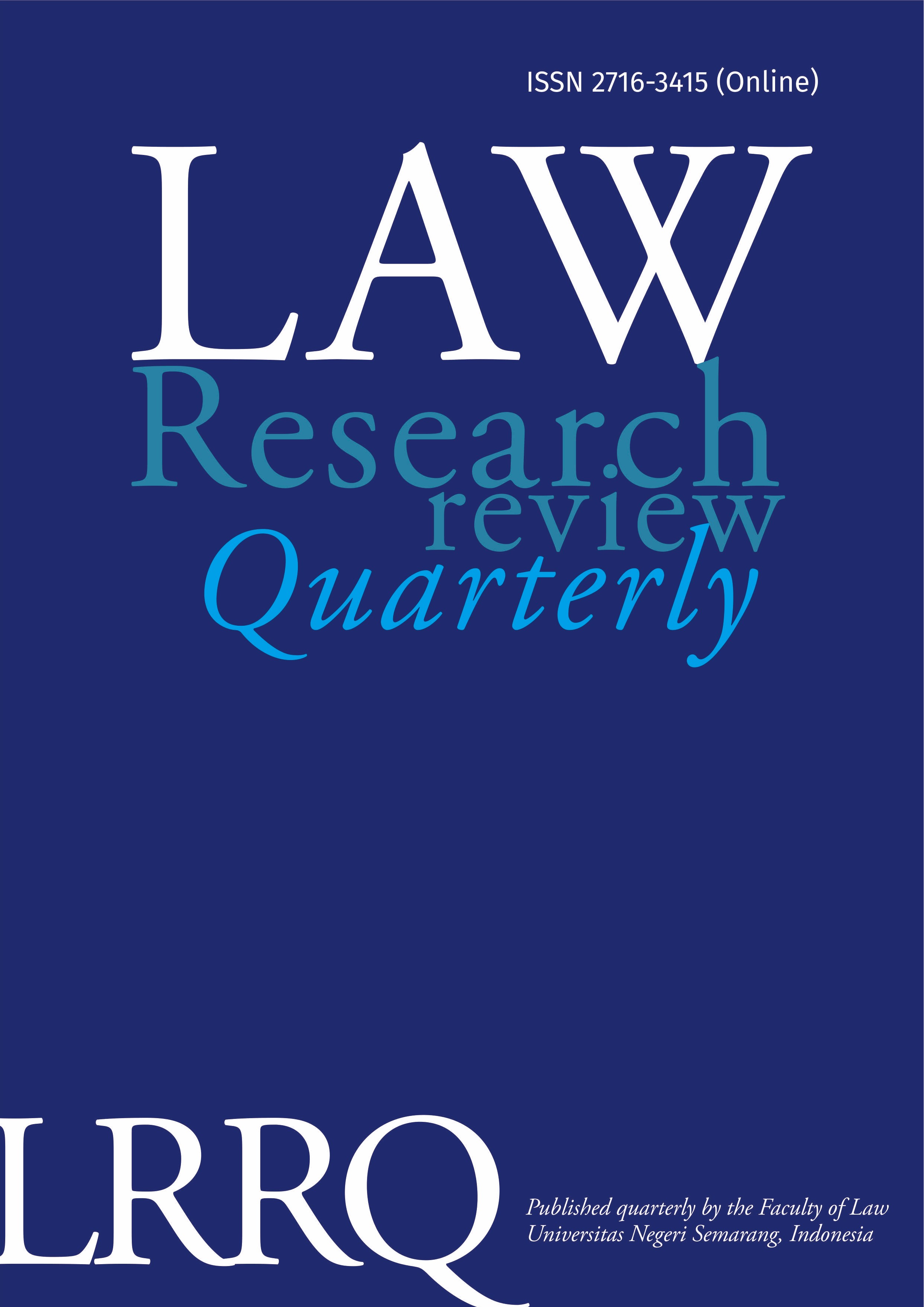Protecting Our Migrant Workers from Violence: How the Legal Protection System Works?
Main Article Content
Abstract
There are many cases of violence against TKI, especially female immigrant workers. This analysis analyzes the legal protection for victims of violence, especially TKI. The method in this study uses a normative juridical study where the researcher uses several references as legal materials to analyze the topic of discussion. This case study finds that Law no. 39 of 2004 concerning the Placement and Protection of Indonesian Migrant Workers Abroad, is a regulation that regulates the protection of Indonesian migrant workers. This regulation stipulates that the regulation of TKI must be based on the principles of integration, equality of rights, democracy, social justice, gender justice and justice, anti-discrimination, and anti-trafficking. The government is responsible for enhancing efforts to protect Indonesian migrant workers abroad. For this reason, it is necessary to find an appropriate solution to overcome these problems and issues. This case study concludes that, although various legal theories and regulations are able to answer cases of violence against TKI, an in-depth analysis is needed to obtain a complete picture. This case study suggests that special regulations or laws are needed to prevent violence against women, in the sense of criminalizing criminal acts to providing legal remedies and sanctions for victims. In this case, sanctions are regulated not only against the perpetrators, but also the legal process and compensation, recovery and safety of victims.
Article Details

This work is licensed under a Creative Commons Attribution-ShareAlike 4.0 International License.
All writings published in this journal are personal views of the authors and do not represent the views of this journal and the author's affiliated institutions. Author(s) are retain the copyrights of the Article. However, before publishing, it is required to obtain written confirmation from Author(s) in order to ensure the originality (Author Statement of Originality). The statement is to be signed by at least one of the authors who have obtained the assent of the co-author(s) where applicable.This work licensed under a Creative Commons Attribution-ShareAlike 4.0 International (CC BY-SA 4.0)
References
JDIH, Government Regulation No. 3 of 2013 concerning the Protection of Indonesian Workers Outside, https://jdih.kemenkeu.go.id/fulltext/2013/3tahun2013pp.htm. Retrieved June 10, 2022.
JDIH, Law No. 39 of 2004 concerning the Placement and Protection of Indonesian Workers Abroad. file:///C:/Users/win%2010/Downloads/UU%20Nomor%2039%20Tahun%202004.pdf.
Law Number 13 of 2003 concerning Manpower.
Law Number 39 of 1999 concerning Human Rights.
Puti Aini Yasmin, Wednesday, February 2, 2022, 20 Most Populated Countries in the World 2022, Inews.id.
Tantimin, T. & Sinukaban, E. (2021). Legal Protection of Women's Labor Rights Related to Gender Equality in Indonesia. Nusantara: Journal of Social Sciences, 8(3), 395-406.
Wahyudi, G. D. T., Mangku, D. G. S., &; Yuliartini, N. P. R. (2020). The Protection of Indonesian Labor Law is Viewed from the Perspective of International Law (Case Study of The Persecution of Adelina TKW from NTT in Malaysia). Jurnal Komunikasi Hukum, 2(1), 55-65.
